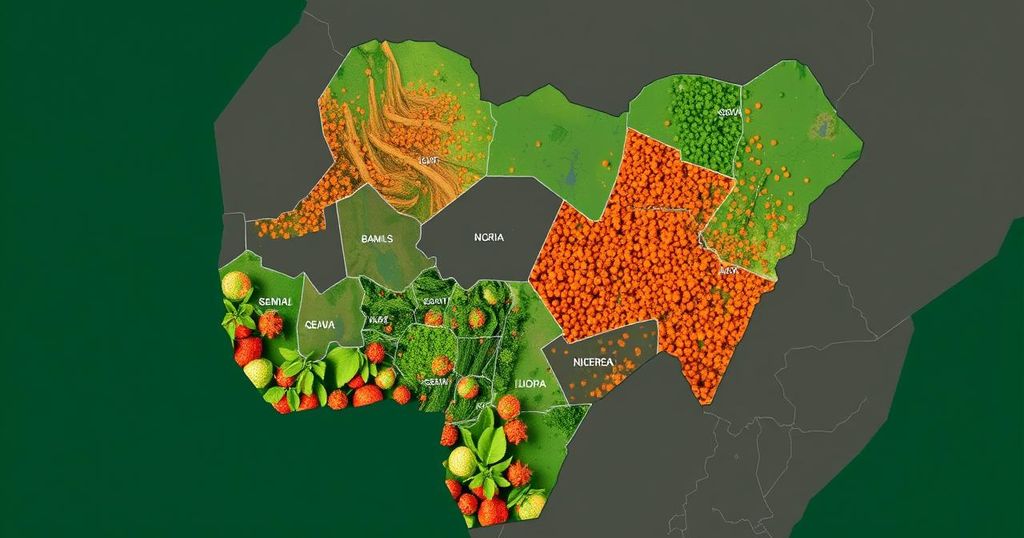The combined impact of climate change and armed conflict in northeastern Nigeria has led to a notable surge in malnutrition rates, particularly among children. The ICRC reports a 24 percent rise in cases in the last year, with numerous families in the Lake Chad region facing severe food insecurity. The conflict has displaced populations, destroyed livelihoods, and limited access to agricultural lands, aggravating the situation. As climate change effects, such as irregular rainfall and flooding, continue to challenge farmers, over six million people could face food shortages in the region soon.
The interplay between climate change and the ongoing armed conflict in northeastern Nigeria has led to a significant rise in malnutrition cases, particularly among children. The International Committee of the Red Cross (ICRC) has expressed serious concerns over this alarming trend, noting a staggering 24 percent increase in reported malnutrition cases in children when compared to the previous year. Families in the Lake Chad region are increasingly struggling to meet their basic food needs, exacerbated by both conflict and environmental factors. For instance, Rabiatu Jubrilla shared her distressing experience at the ICRC’s Mubi stabilization clinic, describing her son’s decline from health to severe malnutrition after she ceased breastfeeding him at 1 year and 9 months. The security challenges posed by armed groups, particularly Boko Haram, have severely limited agricultural activities, forcing many farmers, such as Paul Ezra from Madagali village in Adamawa State, to abandon their fields due to threats of violence. The violence in the region has surged by 58 percent in the first half of 2024, directly impacting food production capabilities and market access. Concurrently, climate change conditions such as erratic rainfall and recent heavy flooding have devastated agricultural efforts, destroying both crops and critical resources. Abubakar Bello Duhu highlighted the dire situation, reporting severe health ramifications due to food scarcity, with some individuals succumbing to hunger-related ailments. The ICRC anticipates that without significant intervention, over six million individuals in the Lake Chad region may face food shortages in the immediate future due to the dual crises of conflict and climate change.
In recent years, Nigeria has grappled with the compounded challenges of climate change and persistent conflict, particularly in the northeastern states. This area has been significantly affected by violence from extremist groups, severely impacting local farming, food security, and overall community stability. The Lake Chad region, which relies heavily on subsistence agriculture, is particularly vulnerable to climate fluctuations, including irregular rainfall patterns and extreme weather events like flooding. These factors collectively contribute to a humanitarian crisis where malnutrition and food scarcity have become increasingly prevalent. The response from various humanitarian organizations, such as the ICRC, emphasizes the urgent need for assistance and interventions to support affected populations.
The current situation in northeastern Nigeria exemplifies a critical intersection between environmental and social crises, leading to substantial increases in malnutrition and food insecurity among vulnerable populations. The compounding effects of ongoing armed conflict and climate change have decimated agricultural production and disrupted food supplies, necessitating immediate and coordinated humanitarian efforts. Without such interventions, the outlook for millions at risk of food shortages remains dire, indicating a pressing need for international attention and support.
Original Source: www.africanews.com






